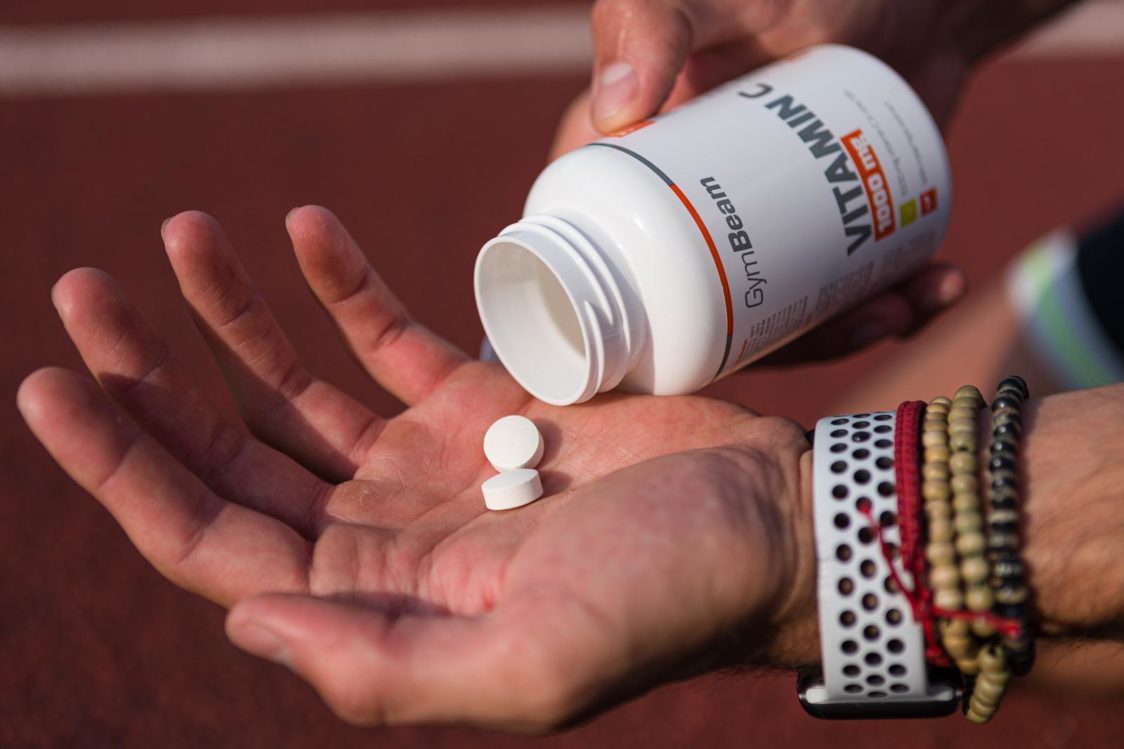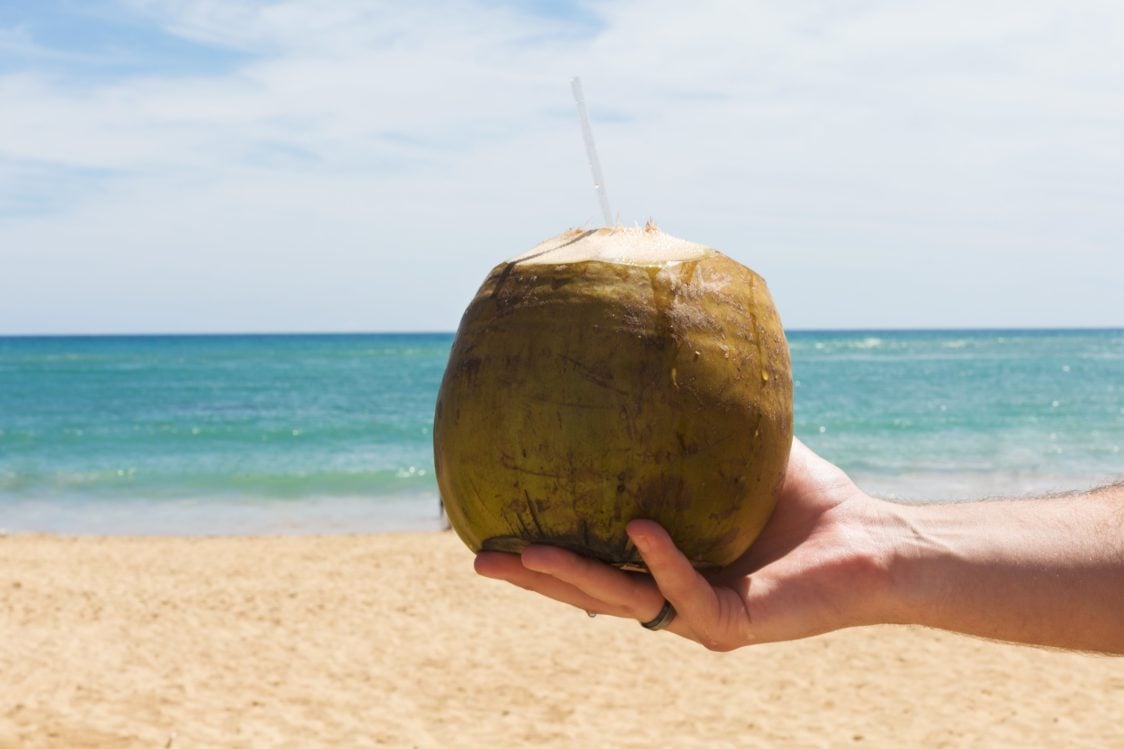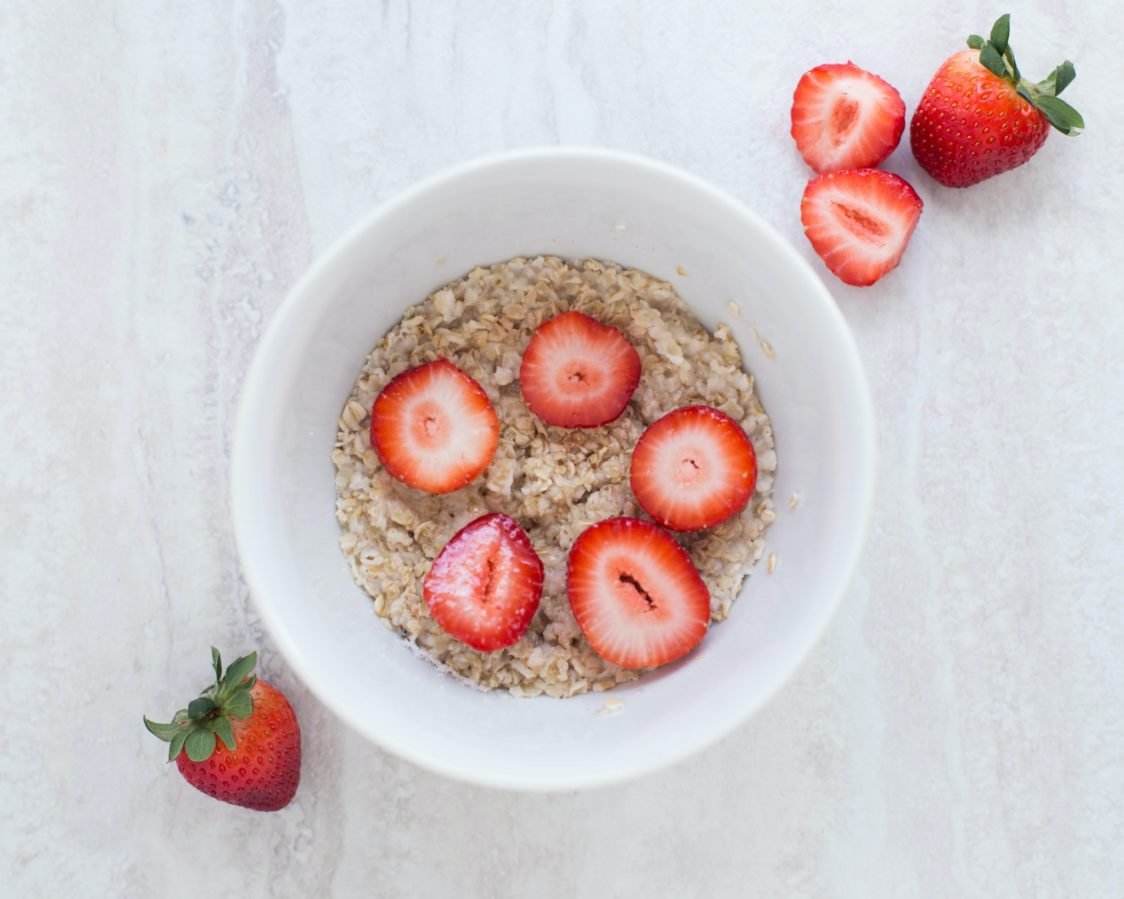Table of Contents
Headache and sore throat, stuffy nose, fever, irritating cough or chills… These are unpleasant and common symptoms that occur with the most common diseases such as flu or cold. However, any type of disease can cause loss of appetite, which in turn leads to nutritional deficiency. It is during the disease that it is important to kick-start our body, so consuming the right foods is the key to restoring health.
Upper and lower respiratory tract infection is rather common in the coming winter. You are subject to it more often at lower temperature. The best cure for diseases such as rhinitis, flu or colds is prevention. But what to do if a disease has already entered your body? In addition to adequate rest and time to recover, a proper diet is also important. In this article, we will advise you on what you should and should not eat when ill.

Why do you lose appetite when you are sick?
If you lie in bed and struggle with disease, usually you would also have a decreased appetite. The taste buds do not function as they should and you tend to abandon normal eating habits. Why is that so? During the disease, the chemistry of the brain changes and the body is subject to inflammatory reactions. Within them, the body produces chemicals called cytokines. These have a wide range of effects and are responsible for loss of appetite.
Another side effect of flu and cold is the partial loss of smell. Tasty broth or fresh broccoli on a plate suddenly do not smell as good as usually. Since the smell and taste are closely connected, you will probably eat less. However, such a “diet” will not help you in the fight against the disease. The body is like the engine of a car that needs quality fuel (even if it breaks down). [1-2]
The winter season brings a lot of diseases. Pharmacies and outpatient departments are full of people more than usual, which is why it is necessary to increase the intake of vitamins, minerals and trace elements. Their deficiency leads to fatigue, which results in weakened immune system, therefore you are also more susceptible to various diseases.

3 reasons why we are more often ill in winter
1. We spend more time indoors
Researchers in China and the United States have found that college students are at higher risk for common diseases if their college premises are poorly ventilated. In rooms with lower humidity and dry air, bacteria from droplets expelled by sneezing can survive for a longer time. Therefore, a more regular stay indoors increases the risk of illness. At the same time, we face bacteria intensively in indoor environment because we touch things more often, such as door handles or a computer keyboard. [3]
2. Viruses are spread faster
You have probably heard about it and it will not be a surprise that viruses spread more in winter. Experts justify this by saying that the lipid profile of the virus hardens at colder temperatures. This means that the virus is more resistant and active, and therefore more likely to infect people in winter.
3. Decreased immunity
In winter, our feet are exposed to greater cold, which can reduce our body’s immunity. The team of scientists at the University of Cardiff came up with this statement. 90 students underwent an interesting test for resistance to cold when they soaked their feet in cold water for 20 minutes. In the next five days, they were much more likely to catch a cold compared to students who did not take this test. Scientists justify their conclusions by saying that exposure of legs to cold temperature caused the blood vessels in the nose to narrow, which in turn reduced their immunity. [4]
Do you want to reduce the chances of getting sick? Find out how to strengthen your immune system in our article: 15 ways to strengthen your immune system and protect your health.
Food as medicine
A well-known ancient physician, considered the founder of medicine, Hippocrates expressed the following idea: “Let food be your medicine and medicine your food”, more than 2,000 years ago. Although medicine at the time was a matter of instinct and experiments rather than the result of empirical research, experts today agree with it. No matter how bad you feel during illness, it is important to follow a regular diet so that your body does not lose vital vitamins, minerals, trace elements or proteins – the basic building block for some cells of the immune system.
Reduced calorie intake may limit the body’s ability to heal itself. Recovering from the disease is a difficult test for the body, and to succeed, it needs help. It is therefore recommended consuming smaller but regular food portions to keep the body energized to fight the virus. You will not get to the gym soon and any attempts and efforts to lose weight should be put off. During illness, there is definitely no space or time for it, on the contrary, all efforts must be invested in obtaining the necessary nutrients and energy from foods.

What foods help overcome illnesses?
- Fruits and vegetables are a quality source of fiber that supports digestion and helps cleanse the colon. Antioxidants help the body fight disease and protect cells from the harmful effects of oxidative stress. The fact is that we indulge in many more fruits and vegetables in the summer months rather than in the winter. However, the body thus loses precious vitamins, which reduces its resistance to disease. Experts advise consuming at least 5 portions of fruit and vegetables a day, at least 400 g of vegetables and 200 g of fruit.
- Good bacteria – probiotics help with diarrhea or bloating, but they also offer much more. Up to 80% of our cells are found in the intestines, and probiotics help maintain and restore the intestinal microflora. Foods containing healthy bacteria such as L. bulgaricus, L. casei and S. thermophilus help reduce the incidence of antibiotic-related digestive disorders. In addition, they also support the absorption of vitamins and minerals, and thus have a beneficial effect on the immune system and the body’s defence. You can find good bacteria especially in yoghurts and probiotic drinks, in sauerkraut, and also in food supplements.
- Prebiotics sound similar to probiotics, but play different role in the body. Prebiotics are substances derived from certain types of carbohydrates, mainly fiber. The intestine cannot digest them, so prebiotics serve as food for the bacteria in the digestive system and have a positive effect on our health and immune system. The sources of prebiotics are mainly asparagus and garlic when it comes to vegetables. The fruit sources are apples, bananas and berries and also beans, wheat, flax and chia seeds.
- Proteins are used by our body to build and repair tissues. They are an important building block of bones, muscles, cartilage, also skin, blood and some cells of the immune system. They also contribute to the production of enzymes and hormones. A good source of protein is lean meat, poultry, fish, beans, eggs and spinach. However, if you are unable to consume enough protein through your diet, try a protein drink or any other protein products.
- Vitamin C is a vital antioxidant that helps cells recover from the fight against the disease. This water-soluble vitamin stimulates white blood cells, and these are beneficial in attacking and destroying any pathogens. The intake of vitamin C can be increased with broccoli, pepper, strawberries, citrus fruit or a dietary supplement.

- Hydration is also important to prevent fatigue, weakness or nausea. Dehydration may occur due to loss of appetite or diarrhea and vomiting. We recommend drinking mainly water and herbal tea. [5-6]
Nutrition supplements will also help kick-start your immune system when you are suffering from cold or flu. To learn more about 9 nutritional supplements that can help you with the flu and colds, read our article Which nutritional supplements can help with the flu and a cold?
One of the most common symptoms of the disease is fever. It describes a body temperature which is higher than normal. It is something like engine overheating. The difference is that the fault is not in the cooling system of the engine or thermostat, but due to germs getting into the body – bacteria, viruses, etc. The good news is that we not only know how to fix overheated engine, but also how to fight the fever. [7]
You might be interested in these products:
What 5 meals do we recommend eating when you have a fever?
When the body temperature reaches about 40 °C, it brings burning eyes and severe headache, but do not panic. These conditions are caused by a bacterial or viral infection, and our immune system, as a soldier in the field, begins to fight the virus. You can help your body by including the following dishes in the daily menu.
1. Chicken broth
Chicken broth is just what the doctor ordered. It helps with upper respiratory tract infections mainly as it is full of vitamins and minerals and enriched with protein. In addition, chicken broth keeps the body hydrated thanks to electrolytes.
2. Coconut water
The healthy effects of coconut water lie mainly in the electrolytes. One of the benefits is also its pleasant aromatic and sweet taste, but also the content of potassium and antioxidants.

3. Garlic
Garlic is known mainly for its antibacterial and antiviral properties. It contains the compound allicin, which improves immunity and reduces the probability of viral fever.
4. Herbal tea
The biggest “classic” in the fight against fever. It has similar effects to chicken broth. Herbal tea helps cleanse mucus and soothes throat irritation. It contains polyphenols, i.e. antioxidants with anti-inflammatory properties that help strengthen the immune system.
5. Fruits and vegetables
Fruit and vegetables may become your “best friends” when you have a fever. They are rich in vitamins and minerals, and most fruits contain up to 80% water, so they perfectly hydrate the body. If you have fever, choose fruit and vegetables without skin and seeds as they contain less fiber. Due to a fever, the digestive system could have a problem digesting such fruits and vegetables.
As we mentioned, fever is one of the symptoms of common diseases such as colds and flu. Another symptom may be a stuffy nose, cough or sore throat. The following foods can help relieve overload and inflammation, and also have a positive effect on the immune system.
What foods should you eat when you suffer from a cold or flu?
We recommend the following products for colds and flu:
Herbal teas
During the diseases caused by droplet infection, it is important to stay hydrated. Herbal tea will refresh you and inhaling its steam helps relieve congestion by loosening mucus. Tea leaves are rich in natural plant compounds such as polyphenols, flavonoids and catechins, which stimulate the immune system.
A cup of water with turmeric can also help, thanks to its anti-inflammatory and antiseptic properties, which can alleviate sore throat. [8-9]

Honey
Honey is perhaps a classic old-time home remedy our grandmas used, and for a good reason. You will appreciate the effects of honey for sore throat caused by a bacterial infection. This sweet and sticky fluid is rich in antimicrobials that help eliminate these types of infections. A review published in 2018 compared honey with commonly available cough medicines for children, placebo and no treatment. The authors found that honey appeared to be more effective than diphenhydramine and salbutamol, which are compounds often used in cough medicine. Administration of honey beyond three days relieved cough symptoms compared to the mentioned medicine.
However, these results should be taken with caution, as most studies have only focused on short-term acute cough when comparing effects. Honey can also be effective in treating cough in children. However, it should not be given to children under one year of age. [10]
Citrus fruits and berries
Orange, lemon, grapefruits, and also some berries, such as blueberries, cranberries and raspberries, contain high levels of flavonoids and vitamin C. They help reduce inflammation and boost the immune system, which can help your body fight fever. [11]
However, you should avoid these products and substances:
Processed foods
White flour and sugar products, fried foods, fast food, sweets, chips, etc. This is because industrially processed foods contain only a minimum of nutrients, vitamins, minerals and enzymes.
Caffeine
Caffeine is an alkaloid that stimulates our nervous system. However, if you need to boost immunity, the herbal tea full of antioxidants will be a more suitable choice. [12]
Alcohol
Alcohol may dehydrate and cause an inflammatory reaction, which may worsen cold and flu symptoms.
6 tips for nausea, diarrhea and vomiting
If you have at least one of these symptoms of the disease, the key is to eat foods that will calm your digestive tract. Simultaneously, they should activate the taste buds and increase the appetite.
Ginger
Research suggests that ginger may reduce the effects of nausea and vomiting, although more studies are needed to confirm these findings. Add 1-2 teaspoons of fresh ginger in a cup of hot water, let it cool for 5 minutes and sweeten with honey. Pay attention to crystallized ginger. It contains a high proportion of sugar, so it should be consumed in moderation. You can also choose a Ginger shot which contains ginger juice, honey, lemon and coconut water, which will perfectly hydrate your body. [13-14]

Bananas, rice, apple juice
Coconut water
These foods contain a lot of carbohydrates in the form of starch and fiber, so they are an ideal aid for nausea, vomiting and diarrhea. Similar foods include biscuits, oatmeal, watermelon and boiled potatoes. [15]
However, we do not recommend the following foods:
Fatty foods
They contain high amounts of difficult-to-digest fats, can irritate the stomach and worsen nausea.
Chilli
Chilli contains capsaicin, which can unpleasantly irritate gastric mucosa. It causes stomach ache and general discomfort.
Dairy products
Dairy products contain sugar – lactose, which can be more difficult to be digested by the body after diarrhea. The side effects are sometimes bloating and nausea.
Get rid of constipation
To ease constipation, it is necessary to increase the intake of soluble fiber, which helps cleanse the intestines, but its excess consumption causes bloating. You need to be patient and increase your intake of soluble fiber gradually. [16]
Oatmeal and oat bran
A cup of oatmeal with water contains about 4 grams of fiber, which is about 16 percent of the recommended daily intake for adults. Oat bran, which is also high in fiber, is even better for digestion than oatmeal.

Dried Fruit
All fruit are a good source of fiber, but dried fruit such as apricots, figs and prunes usually contain even more. In addition, they are rich in sorbitol, which can trigger intestinal activity. Prunes and apricots also contain polyphenols, a group of chemical compounds that have a positive effect on a number of healthy intestinal bacteria, such as Lactobacillus and Bifidobacterium. These bacteria contribute to the optimal function of the digestive tract. [17]
Flax seeds
Flax seeds have a high content of soluble fiber, so they are especially good for supporting regular bowel movements. They lower blood cholesterol levels and are also an excellent source of omega-3 fatty acids. Two tablespoons cover 20% of the recommended daily fiber intake and more than 100% in case of omega-3 fatty acids. [18-19]
However, avoid these foods:
Processed foods
They tend to be high in fat, salt and low in fiber. Fats are difficult to digest, while salt causes a decrease in fecal moisture.
Processed grains
White bread or white rice are also not good during illness. They are free of bran and sprouts, i.e. the parts that contain the most fiber.
Alcohol
Alcohol can cause dehydration and can contribute to constipation because the body needs water for stool to absorb. [20]
What to remember with regards to diseases?
The most important thing to realize is that prevention is always better than cure. In order for the cells of our immune system to function properly, they need to get enough vitamins, minerals, amino acids, essential fatty acids and proteins.
If you have a fever or become ill, the body suggests that it is time to “slow down.” The proper diet helps the body respond quickly and effectively to the germs of viruses and bacterial infections. Quality rest, regular hydration and a diet rich in nutrients and vitamins will help you the most.
We believe that you have learned everything you need to know about the best foods to eat when sick. If you like our article, share it with your friends to help them as well.
[1] Klein Sarah - Why Do We Lose Our Appetite, When We Are Sick? – https://www.huffpost.com/entry/lose-appetite-cold-flu-sick_n_4525367
[2] Smith Kat - Why Do You Lose Your Appetite When You’re Sick? – https://blog.memd.me/lose-appetite-youre-sick/
[3] Sun Y., Wang Z., Zhang. Y, Sundell J., - In China, Students in Crowded Dormitories with a Low Ventilation Rate Have More Common Colds: Evidence for Airborne Transmission – https://journals.plos.org/plosone/article?id=10.1371/journal.pone.0027140
[4] Keck Medicine of USC - What Is a Bunion? – https://www.keckmedicine.org/what-is-a-bunion/
[5] O'Dwyer Jessica - What to eat to recover from illness – https://www.nuffieldhealth.com/article/what-to-eat-to-recover-from-illness
[6] Andrews R., MS, St. Pierre B. and col. - Eating when sick: Should you feed a cold? Or starve a fever? – https://www.precisionnutrition.com/what-to-eat-when-sick
[7] Mayo Clinic Staff - Fever treatment: Quick guide to treating a fever – https://www.mayoclinic.org/diseases-conditions/fever/in-depth/fever/art-20050997
[8] Toden S., Theiss A. L., Wang X., Goel A. - Essential turmeric oils enhance anti-inflammatory efficacy of curcumin in dextran sulfate sodium-induced colitis – https://www.nature.com/articles/s41598-017-00812-6
[9] Brazier Y. - All you need to know about flu – https://www.medicalnewstoday.com/articles/15107
[10] Oduwole O., Udoh E. E., Oyo-Ita A., Meremikwu M. M. - Honey for acute cough in children – https://www.cochranelibrary.com/cdsr/doi/10.1002/14651858.CD007094.pub5/full
[11] Pérez-Cano F. J., Castell M. - Flavonoids, Inflammation and Immune System – https://www.mdpi.com/2072-6643/8/10/659/htm
[12] Nordqwist J. - Health benefits and risks of drinking coffee – https://www.medicalnewstoday.com/articles/270202
[13] Marx W., Kiss N., Isenring L. - Is ginger beneficial for nausea and vomiting? An update of the literature – https://pubmed.ncbi.nlm.nih.gov/25872115/
[14] Lete I., Alluέ J. - The Effectiveness of Ginger in the Prevention of Nausea and Vomiting during Pregnancy and Chemotherapy – https://journals.sagepub.com/doi/10.4137/IMI.S36273
[15] MacGill M. - What you should know about diarrhea – https://www.medicalnewstoday.com/articles/158634
[16] Felman A. - What to know about constipation – https://www.medicalnewstoday.com/articles/150322
[17] Saito Y. A. - Irritable bowel syndrome: new and emerging treatments – https://www.bmj.com/bmj/section-pdf/900007?path=/bmj/350/8014/Clinical_Review.full.pdf
[18] Barbalho S. M., Quesada K., and col. Inflammatory bowel disease: can omega-3 fatty acids really help? – https://www.ncbi.nlm.nih.gov/pmc/articles/PMC4700845/
[19] Grag M. A. - 17 Superfoods That Fight Disease – https://www.health.com/food/17-superfoods-that-fight-disease
[20] Lillis Ch. - What should you eat when you are sick? – https://www.medicalnewstoday.com/articles/321786
[21] Arnarson A. - Artificial Sweeteners: Good or Bad? Artificial Sweeteners: Good or Bad? – https://www.healthline.com/nutrition/artificial-sweeteners-good-or-bad
[22] Lissiman E., Bhasale Al, Cohen M - Garlic for the common cold – https://www.cochrane.org/CD006206/ARI_garlic-common-cold
[23] Ghosh N. - 13 Best Foods To Eat When You Have Viral Fever – https://www.boldsky.com/health/nutrition/2018/foods-for-viral-fever-083637.html
